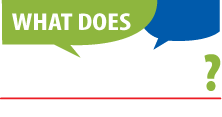Phrases starting with the letter: A B C D E F G H I J K L M N O P Q R S T U V W X Y Z
Definition of: pronoun
(prō′noun) noun
A word used as a substitute for a noun, as he, she, that. [<OF pronom <L pronomen <pro- in place of + nomen name, noun]
—adjective pronoun
Any pronoun used like an adjective; as, that boy, this house, which man. Any demonstrative pronoun, any indefinite pronoun (except none), and any interrogative and relative pronoun (except who) may be used as an adjective pronoun.
—demonstrative pronoun
A pronoun that directly points out its antecedents.
| Singular | Plural |
| this | these |
| that | those |
The same forms are used for all genders, persons, and cases.
—indefinite pronoun
A pronoun that represents an object indefinitely or generally. The principal indefinite pronouns are another, any, both, each, either, neither, none, one, other, some, such. None and any are both singular and plural.
—interrogative pronoun
A pronoun that is used to ask a question.
| Subjective | Possessive | Objective | |
| Singular and Plural | who | whose | whom |
| which | whose, of which | which | |
| what | of what | what |
Of what occurs in such sentences as Of what are you speaking? What are you speaking of?
—personal pronoun
A pronoun that shows by its form the person speaking, the person spoken to, or the person or thing spoken of.
| Singular | Subjective | Possessive | Objective |
| 1st person | I | my or mine | me |
| 2nd person | you | your or yours | you |
| (thou) | (thy or thine) | (thee) | |
| 3rd person | |||
| masculine | he | his | him |
| feminine | she | her or hers | her |
| neuter | it | its | it |
| Plural: | |||
| 1st person | we | our or ours | us |
| 2nd person | you (ye) | your or yours | you |
| 3rd person | they | their or theirs | them |
—reflexive pronoun
A pronoun formed by adding –self or –selves to the oblique cases of the personal pronoun. They serve as an intensive: I, myself, was there; or a reference back to a personal pronoun where the same person is both subject and object: He hit himself.
| Singular | Plural | |
| 1st person | myself | ourselves |
| 2nd person | yourself | yourselves |
| 3rd person | himself, herself, itself | themselves |
—relative pronoun
A pronoun that relates to an antecedent and introduces a qualifying clause: We found a boatman who ferried us.
| Subjective | Possessive | Objective |
| who | whose | whom |
| which | of which | which |
| what | of what | what |
| that | that |
Sometimes as and but are regarded as relative pronouns: Such men as survived the accident; There is not a man but remembers that day. ♦ The relative pronouns who (with its inflected forms whose and whom), which, and what, are identical in form with the interrogative pronouns but they undergo shifts of meaning in interrogative use, often being indefinite and general in reference: What (if anything or of all possible things) is he talking about? But: He is talking about what (specifically) he knows best. These pronouns, when used to introduce an indirect question, are by nature both relative and interrogative: They asked what he wanted; whom he preferred as a colleague; which party he belonged to. Similarly, that is not only a demonstrative but a relative pronoun and it makes a specific and limiting reference in either use.

Comment about this word, ask questions, or add new information about this topic: